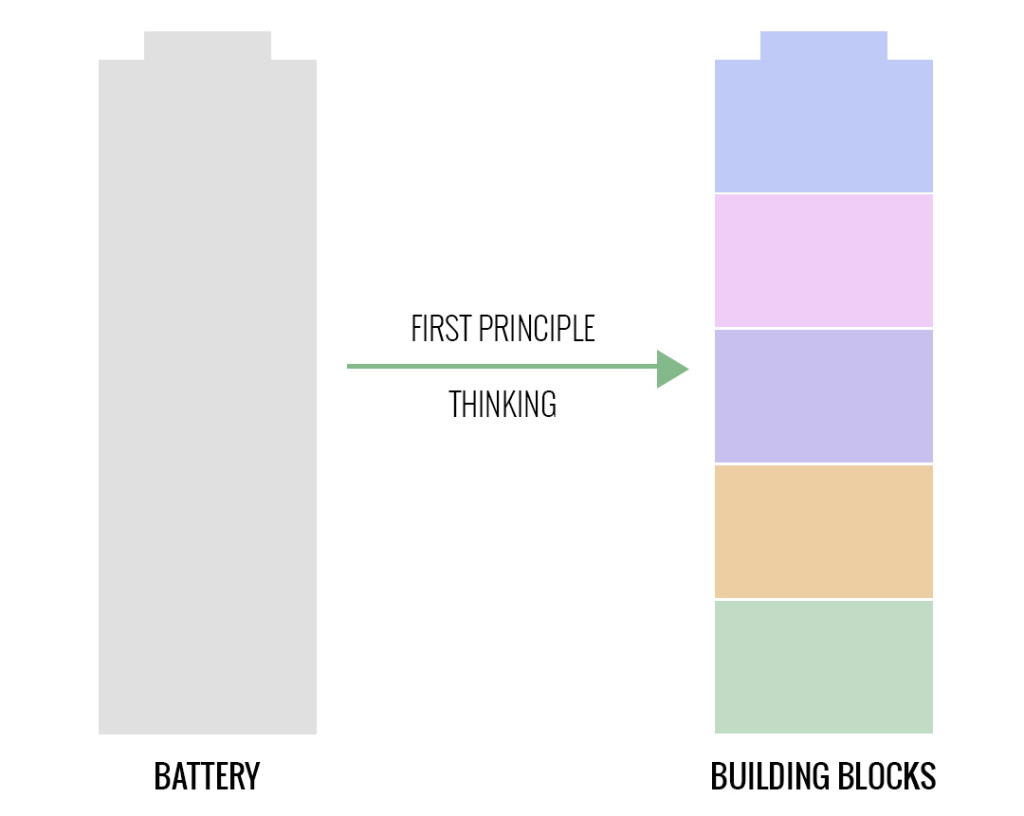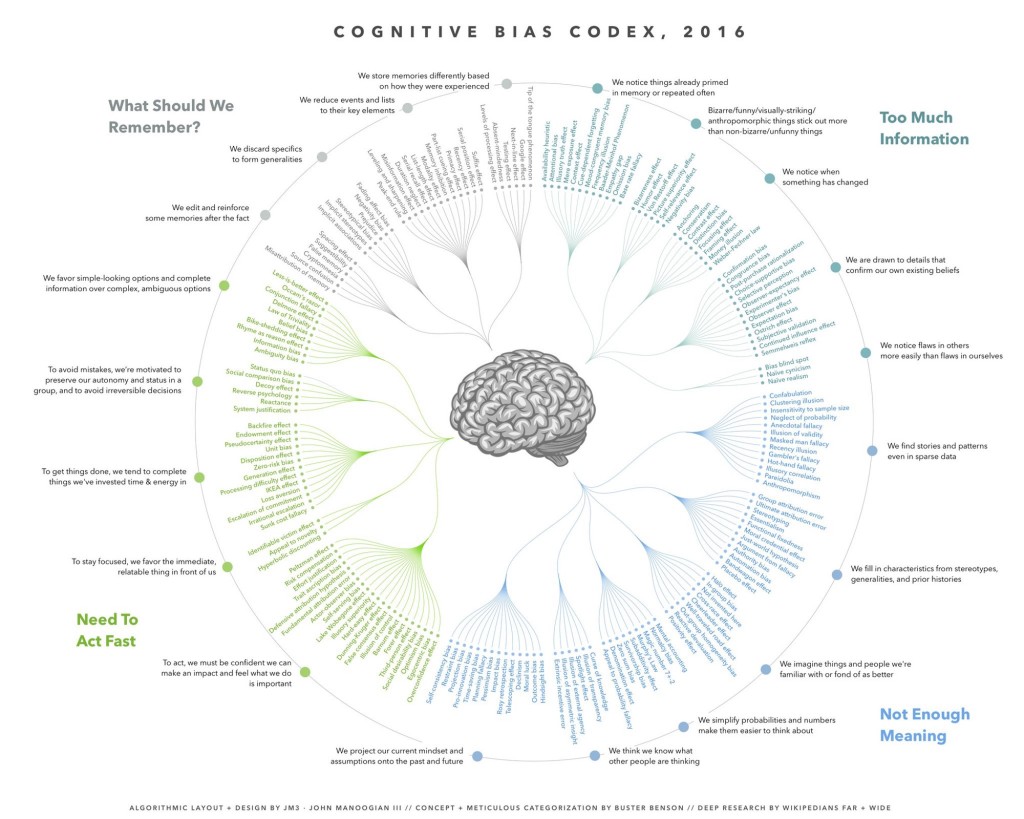Mental models allow individuals to interpret the world around them. They are frameworks that people use to make decisions and understand how things work.
Jay Wright Forrester defined a mental model in this way…”The image of the world around us, which we carry in our head, is just a model. Nobody in his head imagines all the world… He has only selected concepts, and relationships between them…”
Being as they exist in our mind and are never complete, it is easy to see how there would be a lot of variety when it comes to mental models. In fact, they come in all shapes and sizes, catering to different domains and situations. You can find a mental model for just about everything. One of my personal favorites is Jeff Bezos’ Regret Minimization Framework for decision making.
While there are many models, it doesn’t mean they are necessarily right for your personal needs. Your circumstances and experiences are unique, so it only makes sense that you would need a mental model that follows suit. One that lives in your own head.
Many of the greatest minds, from Thomas Edison to Richard Feynman, have used this do-it-yourself approach to models. The common thread of course is first principles.
_________
A
ristotle is one of the greatest philosophers of all time, contributing greatly to the fields of ethics, logic, epistemology, and metacognition. Despite his breadth of influence, every new thought he had started in the same place, with first principles.
In essence, when Aristotle worked in philosophy, he was always looking for ‘the first basis from which a thing is known’ or first principles. Here is how he describes it (via Terence Irwin):
In every systematic inquiry (methodos) where there are first principles, or causes, or elements, knowledge and science result from acquiring knowledge of these; for we think we know something just in case we acquire knowledge of the primary causes, the primary first principles, all the way to the elements. It is clear, then, that in the science of nature as elsewhere, we should try first to determine questions about the first principles.
The naturally proper direction of our road is from things better known and clearer to us, to things that are clearer and better known by nature; for the things known to us are not the same as the things known unconditionally (haplôs). Hence it is necessary for us to progress, following this procedure, from the things that are less clear by nature, but clearer to us, towards things that are clearer and better known by nature. (Phys. 184a10–21)
Essentially he is saying that we start with beliefs that are known to us and then we must work backwards to find the underlying truths those beliefs are built on. It is this type of process that lead to the discovery of first principles.
The great René Descartes followed a similar thought process in his method of doubt, where he would, “systematically doubt everything he could possibly doubt, until he was left with what he saw as purely indubitable truths.”
To simplify things, we can think of first principles as self evident truths or origins that serve as the core of knowledge and understanding. They are the foundation of what we know to be true.
Thinking in terms of first principles is basically like starting your reasoning with only the most essential building blocks. It’s an incredibly powerful idea, but how exactly can we use it? For that, we need to explore how we typically engage with the world around us.
_________
T
he world is an increasingly complex place. Things are anything but black and white. Even so, when we try to explain things, we often leverage the power of analogy to simplify the process.
Analogy is the path of least resistance when it comes to communicating an idea and it does work well when it comes to defining the past or the present. That’s not the case when it comes to the uncertain future. Things get a bit murkier, the finer details get overlooked, and ultimately things are lost in translation.
This use of analogy happens all the time when we try to communicate ideas to one another:
It’s like Uber for project management!
It’s like Lord of the Rings in space!
It’s like going vegan except you can still eat meat!
Analogy provides a quick and dirty way to communicate ideas, although one could argue it may only make things more convoluted (see above). On the other hand, thinking in first principles has the opposite outcome. It takes more time and effort, but in the end you have a deeper understanding and grasp the foundation of what you’re dealing with.
While the concept of first principles was born centuries ago, it is still valid today and championed by everyone’s favorite startup mogul, Elon Musk. In fact, he applied the very idea to justify his venture into Tesla.
The running argument was of course that electric vehicles could never work because the price of batteries were too high. This is an example of an analogy. The cost of batteries is high, therefore electric vehicles are not cost-effective.
Musk explains that if you look at the battery and think in first principles, you quickly realize a new truth. Buying the individual parts of a battery separately and assembling it yourself, allows you to drastically reduce the cost. By using first principles, he realized that the cost of batteries is not really a barrier.
He started with the building blocks of a battery and came to a very different solution. You can watch more from Musk and first principles in the interview below.
The story of Tesla and batteries brings to the fore one of the benefits of first principles: the ability to deconstruct complex problems. First principles allow us to take any idea, no matter the complexity, and break it down into its parts and then break those down further, until you get to the core building blocks.
While this process is not easy, it is valuable. You are able to see things from a different perspective that allows you to uncover solutions and approaches that were otherwise invisible. We could benefit from first principles a lot if we think about it. From understanding why a startup is successful to making better career decisions to wrapping your head around politics.
We could benefit from first principles a lot if we think about it. From understanding why a startup is successful to making better career decisions to wrapping your head around politics.
But that’s not where the value ends. First principles are also incredibly useful when applied as a way to live your life.
_________
W
hat do you stand for? What makes you happy? What is important to you in life? Do you know the answers to these questions?
I’m sure if you sat down and thought about it you could come up with answers and that’s what you need to do to begin to leverage first principles on a personal level. With such answers in hand, you can start to deconstruct what is important to you, until you finally arrive at your fundamental truths and core principles.
These are the principles that will help you lead a better life.
When we know ourselves and what we stand for, then the decisions in life that were previously difficult, become far more clear. It is this sort of understanding that explains why Derek Sivers never took on investors at CD Baby or why Steve Jobs was so adamant about his vision for Apple or why Elon Musk keeps betting on himself or why Nelson Mandela was able to endure prison for the greater good.
Defining your first principles for your career or your health or your relationships or your mission, will help you make decisions, but also give you resolve.
It’s a good deal, but something many of us have never taken the time to think about. My advice is to start thinking about it. Now. Sit down and start defining your own first principles, as they will give you clarity in more ways than one.
Here are a few examples of first principles that I’ve used in my own life:
I will always prioritize autonomy and growth in my career.
I will spare no expense when it comes to taking care of my health.
I will only maintain relationships that have a positive impact on my life.
I will make an effort to always be learning new things.
Having such principles not only gives you guidance, but helps hold you accountable to yourself at a much deeper level.
Most importantly, your principles should be a reflection of who you are and what you value. They shouldn’t change often, but then they aren’t set in stone either. Principles change as your understanding changes, but they should be mostly static to effectively work as a mental model for your life. And that is the ultimate goal.
After all, as Aristotle said, “Knowing yourself is the beginning of all wisdom.” First principles are the stepping stones to that knowledge.
Image via Flickr


